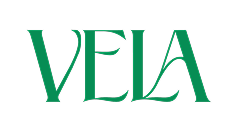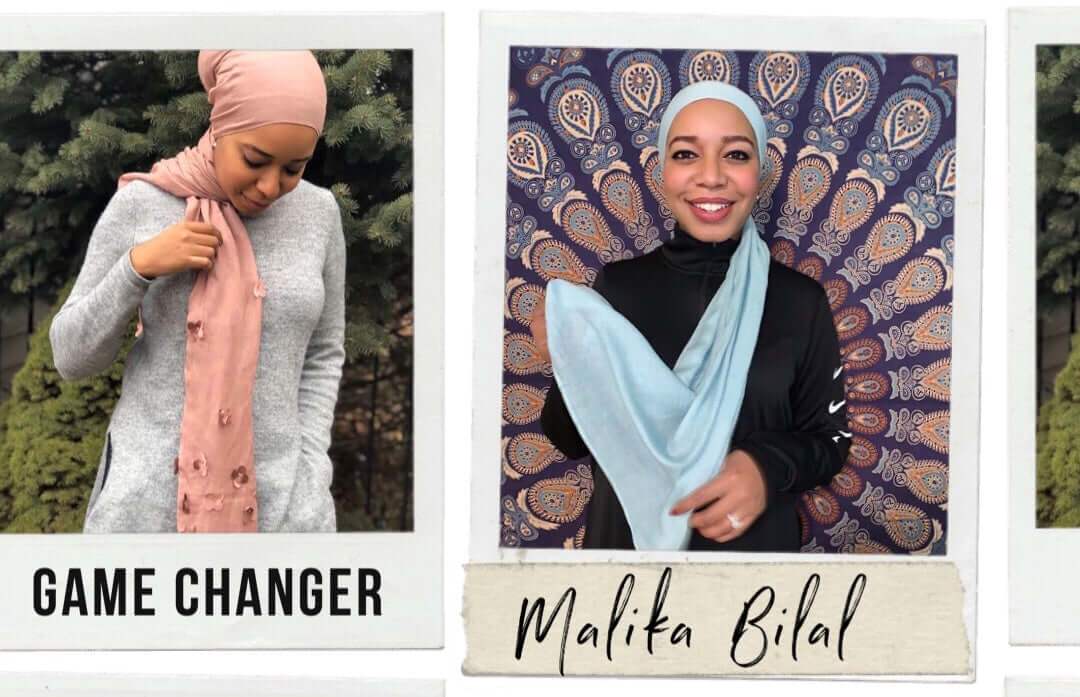We are so excited to feature Malika Bilal, a game changing journalist who is a pioneer in her field. She co-hosted and digitally produced The Stream, an Emmy-nominated interactive news talk show, on Al Jazeera English. There, she connected with diverse audiences around the world and had vibrant discussions about the stories that matter.
Malika also loves to talk about the importance of representation, an issue we take to heart at VELA, and we loved her talk on the power of inclusion.
She is now slated to host a new podcast called The Take, where she’ll continue to highlight international news stories in a unique way. Follow along as we discuss beating Imposter Syndrome and getting outside your comfort zone.

How would you like to introduce yourself to the VELA community?
I’m an African-American Muslim woman, born and raised in Chicago and now living in DC. I’m a journalist and host of an international news podcast and most of all, I love having the opportunity to help other people tell their story..
You started such important and interesting conversations on The Stream. What conversation do you think Muslim brands like Vela should be having in the Muslim community?
I think it can be tricky for brands to find their balance between selling a product and being part of ongoing conversations online. Sometimes it’s risky - you might alienate potential customers. But what I appreciate about VELA is that it’s having a conversation without actually needing to use very many words: its images, its models, its messaging all speak volumes about what the company represents. Our Muslim communities are diverse and #RepresentationMatters. So if a brand, particularly one that caters to Muslims, isn’t pushing forward that conversation, personally I don’t feel the need to give them my business.
You have navigated the Journalism space beautifully. What has that been like, being an African-American Muslim woman in Journalism?
I went to school for print journalism, and briefly thought about dipping into the TV world. But when I looked around at my university’s broadcast program, or on pretty much any news channel, I didn’t see anyone who looked like me, and I wasn’t sure that was a battle I wanted to fight. Eventually, TV is exactly where I ended up. My network asked me to try out for a role on air in 2012, and to be honest, I didn’t really want it - the judgement of millions of eyes on me every day as the sole anchor in hijab on the channel.
But I realized that this was a big opportunity, and that there has to be someone who strikes out and tries. So I took the job. The first few messages I got from young girls online who told me they found me inspiring actually made me uncomfortable - I didn’t see myself as ready to be a role model or an inspiration. It took me a while, but I finally got to the point where I realized that people are looking for that hope, the hope that they, too, can pursue something that they thought was outside the realm of possibility or comfort for them.What would you tell someone who is hesitant to pursue a role or goal, where she hasn’t seen someone like herself in it before?
.
Take a deep breath, then go for it! Don’t listen to the detractors, and know that the biggest detractor is usually yourself. We are usually the ones standing in our own way at first. Don’t give in to Imposter Syndrome. Remind yourself that you belong, you deserve! Give yourself the pep talk that there will be challenges along the way, but that it is not impossible to find ways around them. 
@mmbilal in Blush Flower Petal
You often wore your VELA when broadcasting live. How does your VELA make you feel?
Literally Marwa & Tasneem are a Godsend, mashaAllah. I’ve worn scarves since I was 13 and I’m in my 30s now so that’s a long time. I grew up wearing a school uniform, and I couldn’t wait to graduate so that I could finally wear what I wanted. But there weren’t a whole lot of hijabi-friendly options or scarves to choose from (I’d get them from H&M and Old Navy mostly) until my sister, Alia, introduced me to VELA. It was the most unique scarf I had ever seen, and I loved it. They make me feel like there’s a special occasion, even on a regular day. No matter what, I get comments when I wear them.
One of my favorite comments ever came from a TSA agent. I was wearing this neon tangerine zipper scarf, and as she’s patting me down, she pauses and started asking me about my VELA. She loved the zipper, loved the look and wanted to know where I got it (I told her!) and if anyone could wear one (definitely!). That story represents two things to me. One, that’s ‘dawa’, which is amazing. And two, a normal experience turned into this friendly interaction, and pretty much sums up how I feel about my VELA scarves in a nutshell.
What do you think makes a VELA girl?
She is excited about the idea that her scarf might be a conversation starter. And she’s open about expressing her identity and proclaiming it proudly..
What message do you want to leave the VELA community?
.
Don’t be afraid to be different. Whether that is different in how you look, different in the opinions that you hold, or different in the career path that you choose.
.
Thank you Malika for your courageous trailblazing. This interview has been edited for grammar, but are the thoughts and sentiments of Malika Bilal. Follow @mmbilal to keep up with her work. Stay tuned for more features from our inspiring community!


Leave a comment